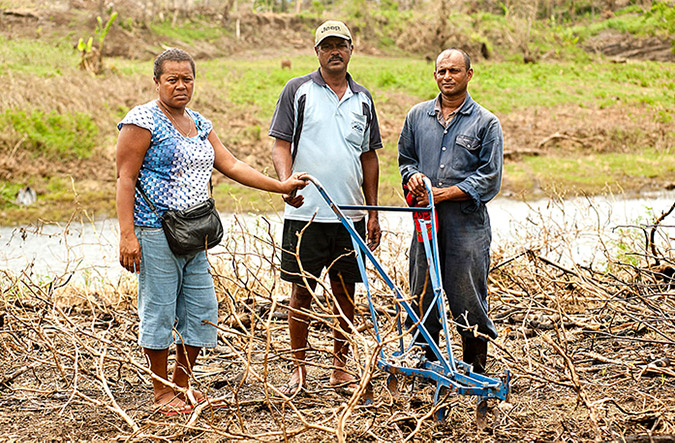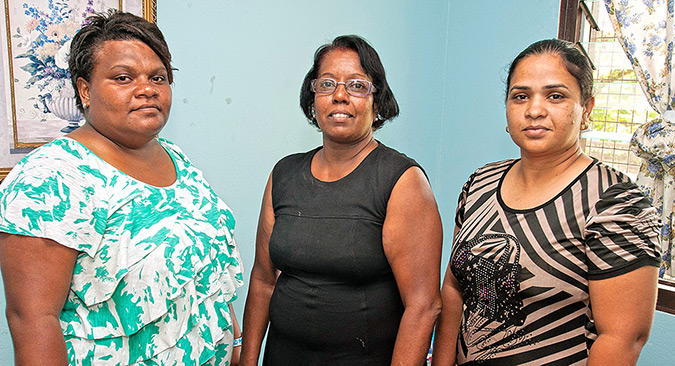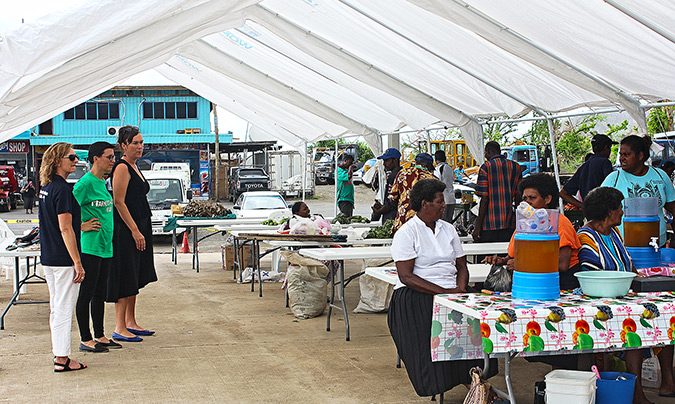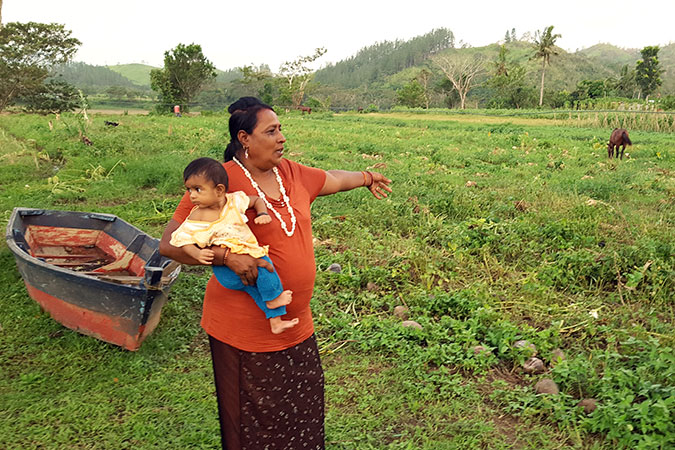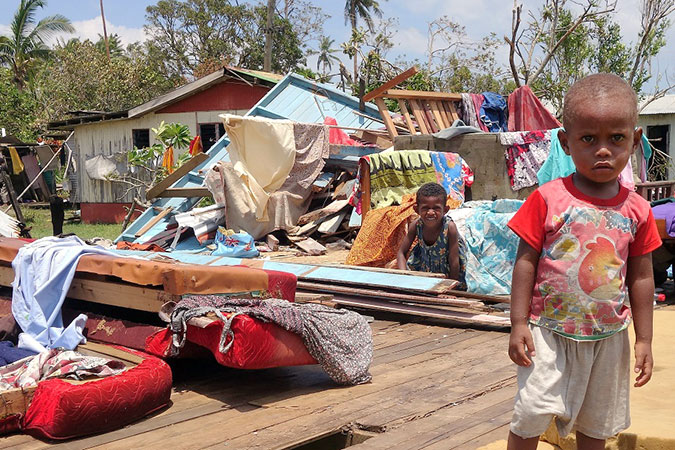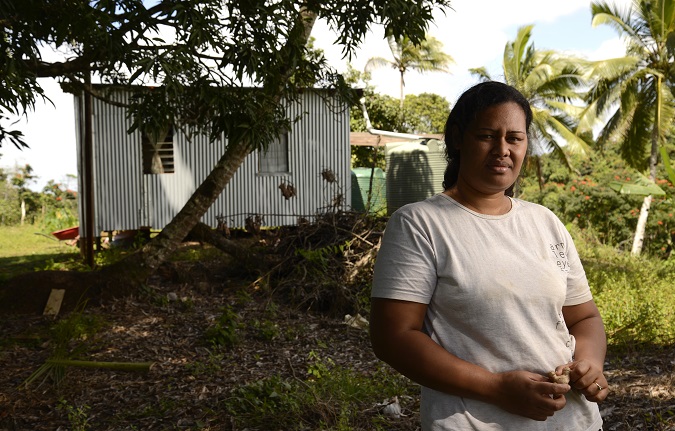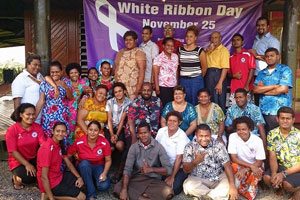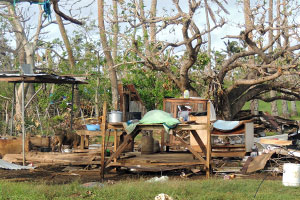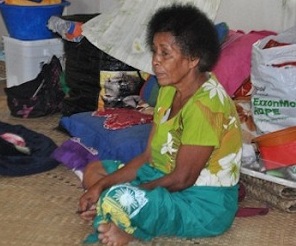A snapshot of our work in response to the cyclone in Fiji
Date:
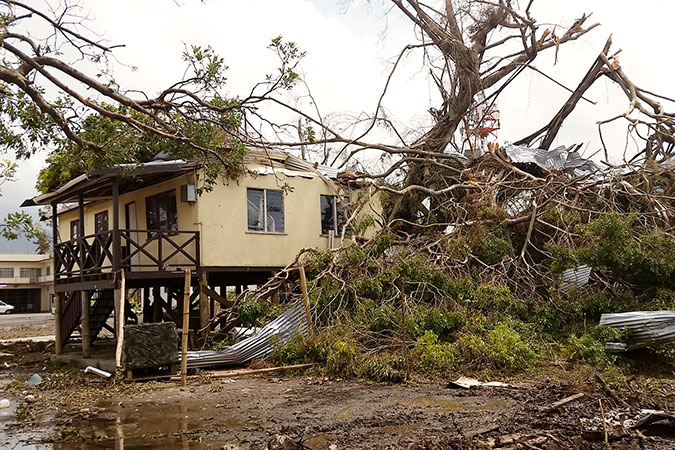
The strongest cyclone ever to make landfall in the Southern Hemisphere, Cyclone Winston ravaged Fiji on 20 February 2016, destroying crops and critical infrastructure and flattening villages. In its wake, UN Women has been providing funds and technical support to local women and organizations as they work to protect women and girls from gender-based violence, help them access essential information about relief and protection services, and rebuild the marketplaces that provided women and their families with a secure food supply.
UN Women has also supported Fiji’s Ministry of Women, Children and Poverty Alleviation, co-leading coordination on specific areas, such as safety and protection and gender-based violence in emergencies. Along with UNICEF and other UN agencies, government, international and national NGOs, UN Women has conducted a large-scale assessment of the protection needs in affected areas, to ensure that the goods and services we have to distribute go to those most in need. The assessments are ongoing, but early feedback from response agencies shows that women and girls have been deeply affected.
Our work on the ground
Women's economic empowerment critical for safeguarding food security
In the aftermath of Cyclone Winston, UN Women and partners are working to protect the essential roles women play in every part of Fiji’s food supply chain.
Psychosocial assessments help address needs of women and girls in Fiji
Empower Pacific counsellors carry out psychosocial assessments in affected communities and evacuation sites, gathering information on the kind of services and support that are required.
Temporary market space in Rakiraki supports vendors post Cyclone Winston
As part of its Markets for Change project, UN Women provided tents, extra tables and chairs to provide a temporary market space for as many vendors as possible while the new market building is constructed.
Fiji’s market vendors and farmers face an uncertain future
UN Women staff visited some of the worst-affected areas in Fiji in the days after Category 5 Cyclone Winston hit to talk to women market vendors and farmers about the impact the storm had on their ability to support their families.
Women of Fiji look for support to rebuild their livelihoods
Tropical Cyclone Winston's destruction of crops and market buildings not only takes away sources of income, it threatens the food security of entire communities. Through its Markets for Change project, UN Women will be working with partners to provide women market vendors with tools, supplies, seeds and training so they can replant their gardens and get back on their feet as quickly as possible.
Fiji cyclone appeal
On 20 February, Fiji was hit by one of the strongest cyclones ever recorded in the Southern Hemisphere. The women of Fiji already faced rates of violence double the global average and the cyclone has put women at an even greater risk. Women in Fiji need somewhere to turn if they experience violence and support in rebuilding their homes and livelihoods.
In Fiji first responders train to address sexual violence in disasters
Because the risk of violence against women and girls increases in the aftermath of a disaster, UN Women is supporting training for first responders and disaster-risk-reduction planners in Fiji to prevent, recognize and address violence in emergencies across the Pacific.
Putting women at the forefront of climate change and disaster response in the Pacific
Whether training women solar engineers in Fiji or assisting with the humanitarian response plan after a major cyclone in Tonga, UN Women is working with climate-change and disaster-management professionals across the Pacific.
UN Women provides support to Fiji Flood Response
Following the devastating floods that have impacted the lives of nearly all residents in Western Fiji, the UN Women Pacific Sub-regional Office has received USD $50,000 to provide gender-responsive support to the areas impacted by floods.
